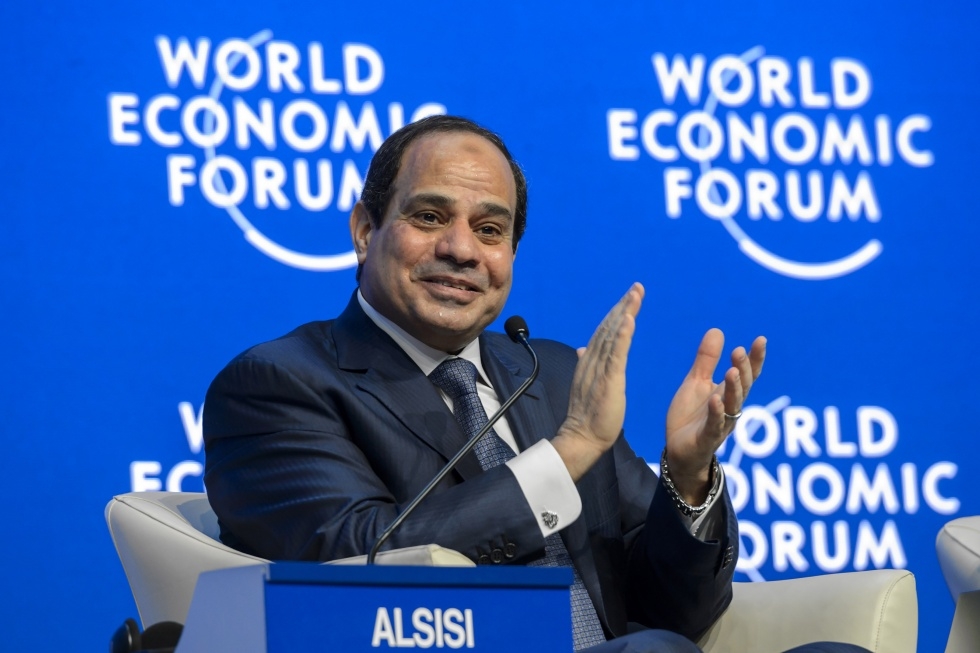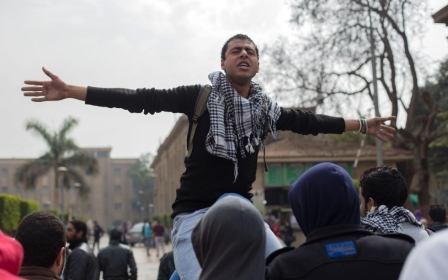Sisi and Erdogan to visit Saudi Arabia amid talk of reconciliation

Egyptian President Abdel-Fattah al-Sisi will travel to Saudi Arabia on Sunday for an official visit, his first to the kingdom since King Salman bin Abdulaziz al-Saud ascended to the throne in January.
In a statement the Egyptian presidency said Sisi will meet with King Salman as well as Crown Prince Muqrin bin Abdulaziz and Deputy Crown Prince Mohamed bin Nayef.
The announcement did not reveal the length of the visit but did reveal talks will be focussing on increasing political and economic ties between the two countries and also cover regional developments with a focus on the turmoil in Yemen.
Saudi Arabia under the late King Abdullah supported former army chief in his 2013 popularly backed military coup that unseated democratically elected Mohammed Morsi from power. The oil-rich Gulf state subsequently provided billions of dollars in aid to prop up an ailing Egyptian economy.
However, since the ascension of King Salman, relations between Riyadh and Cairo have seemingly become fraught.
Leaked recordings from Sisi’s office earlier in February alleged that the Egyptian president had made derogatory comments about his Gulf patrons, describing the monarchies as “half-states” who should “pay up” because “they are living a fancy life and have piles of money”.
Sisi responded to the leak by calling Salman - as well as leaders in the UAE, Kuwait and Bahrain – who reportedly reassured the Egyptian president that support would continue to flow from Riyadh to Cairo.
Some commentators have questioned whether Saudi Arabia will provide further economic aid to Egypt due to economic constraints.
“The Saudis are not giving any money to Sisi not because of a change of policy but because of the economic crunch with low oil prices,” Mujtahidd, the owner of a popular Twitter account with 1.75 million followers that purports to leak secrets from within Saudi Arabia, told MEE.
“The moral and political support will not be reduced.”
Speculation of an emerging rift has continued to spiral though, fanned by rumours of Riyadh considering a change in its policy toward the Muslim Brotherhood.
Sisi has led a far-reaching crackdown on the Brotherhood since imprisoning its leader Mohamed Morsi in 2013, labelling the group terrorists, a designation mirrored in Saudi Arabia under Abdullah. However, Saudi Foreign Minister Saud bin Faisal recently said the kingdom has “no problem” with the Muslim Brotherhood, a departure from the severe rhetoric used against the Brotherhood under Abdullah.
Mujtahidd said Salman will change course toward the Muslim Brotherhood, reversing Abdullah’s approach, but will remain wary of a group that threatens his family’s dynastic rule with their brand of Islamic democracy.
“There will be a reduction in hostility but not reversal [in policy],” he said. “The extreme position taken during Abdullah-era was unrealistic. Saudi Arabia is wary of the Muslim Brotherhood and Prince Nayef did describe them 10 years ago as the source of all evil, but the regime [before Abdullah] always avoided dealing with them as terrorists.”
“The position [under Salman] will go back to pre-Abdullah times.”
When Sisi travels to Saudi Arabia on Sunday his visit will coincide with a four-day stopover being made by Turkish President Recep Tayyip Erdogan, who is in the kingdom to discuss “strategic relations” with Salman.
Erdogan’s presence in Saudi Arabia at the same time as Sisi has led to some commentators speculating Salman could mediate between the Egyptian and Turkish leaders, who are strident political opponents.
Turkish officials told news outlet, Arab 21, that Erdogan and Sisi would not meet next week despite the two leaders being in Riyadh at the same time.
Analysts explained that Erdogan – a strong supporter of the Muslim Brotherhood – has refused to speak to Sisi at events both have attended in the past year and that reconciliation is unlikely.
“The two presidents have had sort of proximate encounters in the last year – at New York in September, but Erdogan is reported to have refused to sit at the same table as him, and at Abdullah’s funeral last month,” said David Barchard, a journalist and consultant resident in Turkey. “I think mediation is unlikely as there are inner tensions in the Saudi-Turkish relationship, though with Qatar apparently going down the route of better relations with Saudi Arabia no doubt Turkey would too.”
“Erdogan is not noted for his U-turns and though he can sound more conciliatory at some times than others, once he detects a foe he does not usually go in for reconciliations.”
Erdogan responded to the coup led by Sisi in June 2013 by demanding “respect [for] the choice of the people at the ballot box.” The Turkish president’s strident support for the Muslim Brotherhood has been backed by Saudi Arabia’s wealthy neighbour and political rival Qatar.
Doha provided billions of dollars in financing to Egypt under the leadership of the ousted Morsi, which led to a frosting of relations when Sisi took power in 2013. In recent months there has been a détente between Egypt and Qatar, arranged for by the late Abdullah, although relations have recently taken a turn for the worse again.
After Qatar denounced Egyptian airstrikes against Islamic State militants in Libya – carried out in response to the apparent beheading of 21 Coptic Christians – Cairo responded by accusing the Gulf state of supporting “terrorists”.
On Thursday, while on a visit to the US, Qatari Emir Sheikh Tamim bin Hamad al-Thani appeared to try and calm the dispute by stating his commitment to “stability” in Egypt.
“My policy is to make sure that if there is anything that I can help to stabilise the situation in Egypt I will do so,” the emir said, according to AFP. “Now there is a government there, we have differences with them but we all agree that this government has to be stable.”
New MEE newsletter: Jerusalem Dispatch
Sign up to get the latest insights and analysis on Israel-Palestine, alongside Turkey Unpacked and other MEE newsletters
Middle East Eye delivers independent and unrivalled coverage and analysis of the Middle East, North Africa and beyond. To learn more about republishing this content and the associated fees, please fill out this form. More about MEE can be found here.




